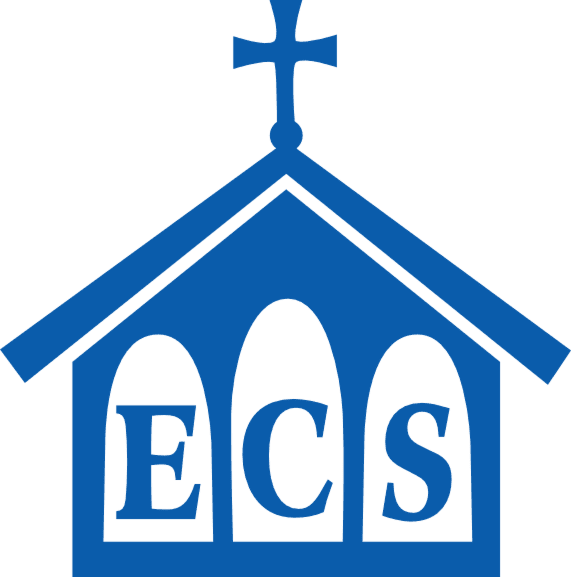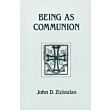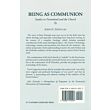Being As Communion: Studies in Personhood and the Church
John D. Zizioulas
with a Foreword by John Meyendorff
with a Foreword by John Meyendorff
Publication Data: Crestwood, NY: St Vladimir’s Seminary Press, 1985
Format: softcover
Number of Pages: 269
Dimensions (l × w × h): 21.6 cm × 14.0 cm × 1.9 cm
ISBN: 0‒88141‒029‒2
ISBN: 978‒0‒88141‒029‒7
John D. Zizioulas
with a Foreword by John Meyendorff
Number Four of Contemporary Greek Theologians
“The Church is not simply an institution. She is a ‘mode of existence,’ a way of being. The mystery of the Church, even in its institutional dimension, is deeply bound to the being of man, to the being of the world and to the very being of God. In virtue of this bond, so characteristic of patristic thought, ecclesiology assumes a marked importance, not only for all aspects of theology, but also for the existential needs of man in every age. In the first place, ecclesial being is bound to the very being of God. From the fact that a human being is a member of the Church, he becomes an ‘image of God,’ he exists as God Himself exists, he takes on God’s ‘way of being.’ This way of being is not a moral attainment, something that man accomplishes. It is a way of relationship with the world, with other people and with God, an event of communion, and that is why it cannot be realized as the achievement of an individual, but only as an ecclesial fact.”
—“Introduction”
CONTENTS
Foreword
Preface
Introduction
Chapter 1
PERSONHOOD AND BEING
I. From Mask to Person: The Birth of an Ontology of Personhood
II. From Biological to Ecclesial Existence: The Ecclesiological Significance of the Person
Chapter 2
TRUTH AND COMMUNION
I. Introduction: The Problem of Truth in the Patristic Era
II. Truth, Being and History: The Greek Patristic Synthesis
1. The “Logos” Approach
2. The Eucharistic Approach
3. The Trinitarian Approach
4. The “Apophatic” Approach
5. The Christological Approach
6. The Approach through the “Eikon”
III. Truth and Salvation: The Existential Implications of Truth as Communion
1. Truth and the Fallen Existence: the Rupture Between Being and Communion
2. Truth and the Person
3. Truth and the Savior
IV. Truth and the Church: Ecclesiological Consequences of the Greek Patristic Synthesis
1. The Body of Christ formed in the Spirit
2. The Eucharist as the Locus of Truth
Chapter 3
CHRIST, THE SPIRIT AND THE CHURCH
I. Introduction
II. The Problem of the Synthesis between Christology and Pneumatology
III. Implications of the Synthesis for Ecclesiology
IV. Conclusions
Chapter 4
EUCHARIST AND CATHOLICITY
I. The “One” and the “Many” in the Eucharistic Consciousness of the Early Church
II. The Composition and Structure of the Eucharistic Community as Reflections of Catholicity
III. The Eucharistic Community and the “Catholic Church in the World”
IV. Some General Conclusions
Chapter 5
APOSTOLIC CONTINUITY AND SUCCESSION
I. The Two Approaches, “Historical” and “Eschatological,” to Apostolic Continunity
II. Towards a Synthesis of the “Historical” and the “Eschatological” Approach
III. Concrete Consequences for the Life of the Church
IV. Conclusion for the Ecumenical Debate
Chapter 6
MINISTRY AND COMMUNION
I. The Theological Perspective
II. The Relational Character of Ministry
III. The “Sacramental” Character of the Ministry
IV. Ministry and Unity
V. The “Validity” of the Ministry
Chapter 7
THE LOCAL CHURCH IN A PERSPECTIVE OF COMMUNION
I. The Historical and Ecclesiological Background
II. Questions Concerning the Theology of the Local Church Today
1. Ecclesiality and Locality
2. Locality and Universality
3. The Local Church in a Context of Division
List of Sources
Index
Format: softcover
Number of Pages: 269
Dimensions (l × w × h): 21.6 cm × 14.0 cm × 1.9 cm
ISBN: 0‒88141‒029‒2
ISBN: 978‒0‒88141‒029‒7
John D. Zizioulas
with a Foreword by John Meyendorff
Number Four of Contemporary Greek Theologians
“The Church is not simply an institution. She is a ‘mode of existence,’ a way of being. The mystery of the Church, even in its institutional dimension, is deeply bound to the being of man, to the being of the world and to the very being of God. In virtue of this bond, so characteristic of patristic thought, ecclesiology assumes a marked importance, not only for all aspects of theology, but also for the existential needs of man in every age. In the first place, ecclesial being is bound to the very being of God. From the fact that a human being is a member of the Church, he becomes an ‘image of God,’ he exists as God Himself exists, he takes on God’s ‘way of being.’ This way of being is not a moral attainment, something that man accomplishes. It is a way of relationship with the world, with other people and with God, an event of communion, and that is why it cannot be realized as the achievement of an individual, but only as an ecclesial fact.”
—“Introduction”
CONTENTS
Foreword
Preface
Introduction
Chapter 1
PERSONHOOD AND BEING
I. From Mask to Person: The Birth of an Ontology of Personhood
II. From Biological to Ecclesial Existence: The Ecclesiological Significance of the Person
Chapter 2
TRUTH AND COMMUNION
I. Introduction: The Problem of Truth in the Patristic Era
II. Truth, Being and History: The Greek Patristic Synthesis
1. The “Logos” Approach
2. The Eucharistic Approach
3. The Trinitarian Approach
4. The “Apophatic” Approach
5. The Christological Approach
6. The Approach through the “Eikon”
III. Truth and Salvation: The Existential Implications of Truth as Communion
1. Truth and the Fallen Existence: the Rupture Between Being and Communion
2. Truth and the Person
3. Truth and the Savior
IV. Truth and the Church: Ecclesiological Consequences of the Greek Patristic Synthesis
1. The Body of Christ formed in the Spirit
2. The Eucharist as the Locus of Truth
Chapter 3
CHRIST, THE SPIRIT AND THE CHURCH
I. Introduction
II. The Problem of the Synthesis between Christology and Pneumatology
III. Implications of the Synthesis for Ecclesiology
IV. Conclusions
Chapter 4
EUCHARIST AND CATHOLICITY
I. The “One” and the “Many” in the Eucharistic Consciousness of the Early Church
II. The Composition and Structure of the Eucharistic Community as Reflections of Catholicity
III. The Eucharistic Community and the “Catholic Church in the World”
IV. Some General Conclusions
Chapter 5
APOSTOLIC CONTINUITY AND SUCCESSION
I. The Two Approaches, “Historical” and “Eschatological,” to Apostolic Continunity
II. Towards a Synthesis of the “Historical” and the “Eschatological” Approach
III. Concrete Consequences for the Life of the Church
IV. Conclusion for the Ecumenical Debate
Chapter 6
MINISTRY AND COMMUNION
I. The Theological Perspective
II. The Relational Character of Ministry
III. The “Sacramental” Character of the Ministry
IV. Ministry and Unity
V. The “Validity” of the Ministry
Chapter 7
THE LOCAL CHURCH IN A PERSPECTIVE OF COMMUNION
I. The Historical and Ecclesiological Background
II. Questions Concerning the Theology of the Local Church Today
1. Ecclesiality and Locality
2. Locality and Universality
3. The Local Church in a Context of Division
List of Sources
Index
Write Your Own Review






